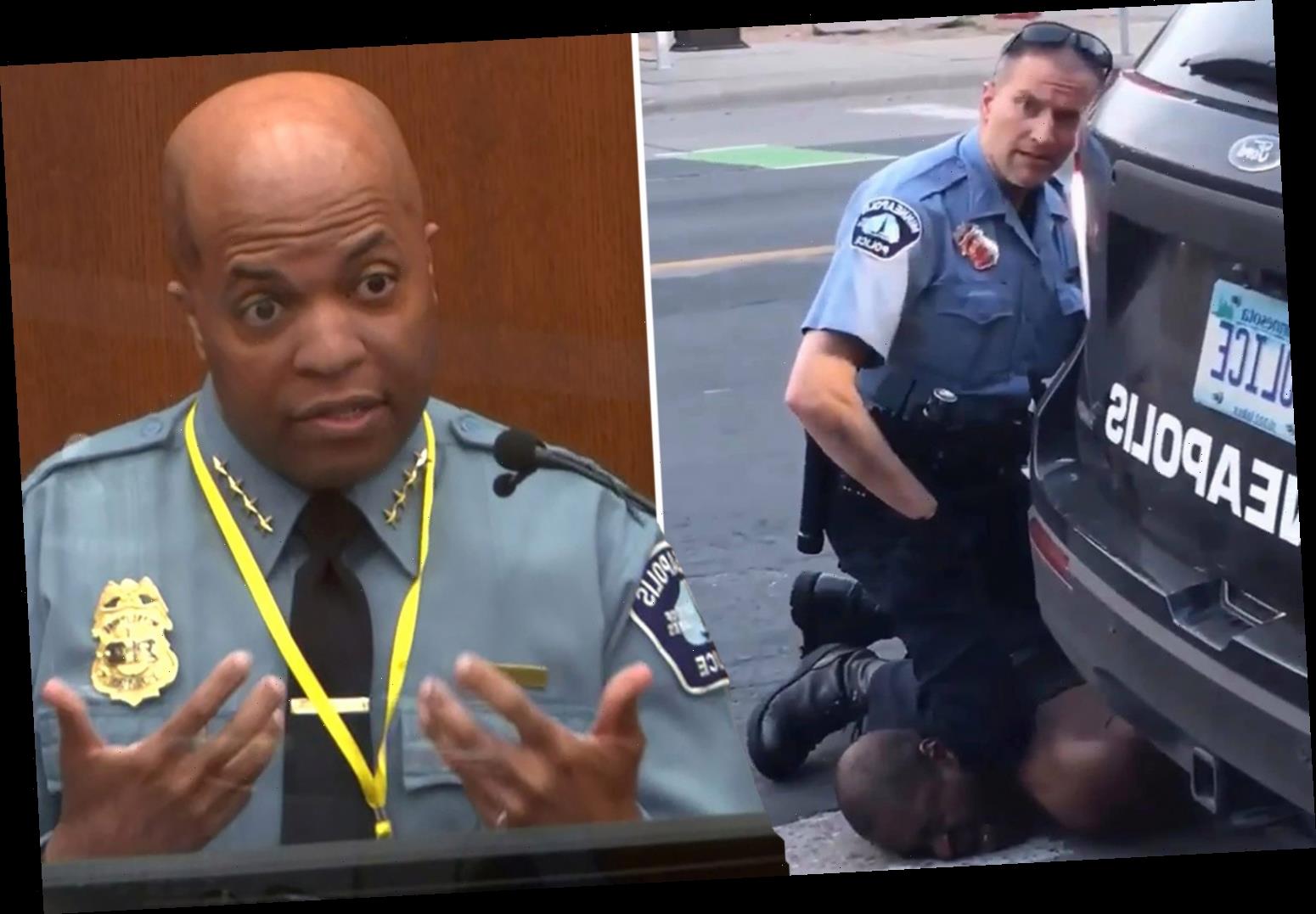DEREK Chauvin "absolutely" violated cop policies when he knelt on George Floyd's neck for over nine minutes, Minneapolis' police chief said.
Testifying at Chauvin's murder trial on Monday, Chief Medaria Arradondo said the former cop failed to follow department use-of-force, de-escalation and duty to render air policies.
"I absolutely agree that violates our policy," Chief Arrandondo said when asked about Chauvin's tactics by the prosecutor.
"That is not part of our policy; that is not what we teach," he added.
He later added that Chauvin's actions may have been acceptable during "the first few seconds" of his interaction with Floyd, but not after the man was subdued.
“Once Mr. Floyd had stopped resisting, and certainly once he was in distress and trying to verbalize that, that should have stopped,” Arradondo said.
Dr Wankhede Langenfeld, the doctor who tried to save Floyd for about 30 minutes before he was pronounced dead, also testified on Monday.
Dr Langenfeld said that he believed Floyd's cause of death was a lack of oxygen.
During a cross-examination, Dr Langenfeld said that asphyxia can be caused by a number of factors, including drug use.
How Floyd died will play a key role in the trial, as a toxicology report did find methamphetamine and fentanyl in his system.
The longest serving police officer in Minneapolis, Lt. Richard Zimmerman, testified on Friday, and agreed that the level of force used on Floyd was "totally unnecessary."
"Holding him down to the ground face down and putting your knee on the neck for that amount of time, is just uncalled for," Zimmerman told the court.
He said kneeling on the neck of a suspect is potentially lethal and there is "absolutely" an obligation to provide medical help as soon as possible.
The senior cop said he was never trained to kneel on the neck of a suspect who is prone — which means lying flat.
"That would be the top level of force," he said.
"That person is yours. His safety is your responsibility. His well-being is your responsibility."
He added: "Once a person is in handcuffed, you need to get them out of the prone position as soon as possible because it restricts their breathing.
Chauvin, 45, is charged with second-degree murder, third-degree murder and second-degree manslaughter.
Floyd, a black man, died in police custody on May 25 last year after Chauvin pinned his knee against Floyd’s neck for more than nine minutes.
In his cross-examination, Eric J. Nelson, Chauvin's lawyer, got Zimmerman to agree that cops "are allowed to use whatever force is necessary" when an officer is involved in a "fight for life" situation.
"A person who is handcuffed can still pose a threat, right?" Nelson asked.
"I suppose," Zimmerman replied.
Also last week, the 19-year-old store clerk who reported Floyd for paying with a counterfeit $20 bill moments before he was killed in police custody said he feels like a "contributing factor" in his death.
In an emotional interview, Christopher Martin described himself as the "big domino" in Floyd's death, telling ABC had he never had checked the bill, "none of this would've happened."
On Wednesday, Martin testified how he watched Floyd's arrest outside his former employer Cup Foods with "disbelief and guilt."
"Not only am I the contributing factor, I'm kind of like the big domino that fell, and then now all the small dominos are just scattered," he said.
When asked by attorneys why he felt guilty, Martin responded: "If I would've just not [taken] the bill, this could've been avoided."
Martin also described Floyd as appearing "high" as he attempted to buy cigarettes inside the store. But he otherwise described the father-of-one as friendly and approachable.
Martin told the court he still struggles with lingering guilt over the death of Floyd, which has been a common theme among other bystanders, who've also expressed feelings of helplessness or regret over his death.
New footage has also emerged showing Floyd flatlining in the back of an ambulance as a paramedic told the court that he already "thought he was dead" when they arrived.
Derek Smith told the court on Thursday of battling to give Floyd a "second chance at life" despite being unable to find a pulse and believing him dead before medical help arrived.
"He was in handcuffs at the time," paramedics arrived, Smith told the court, adding that "officers were still on him when I approached."
The trial began last week and is expected to last four weeks.
Source: Read Full Article













